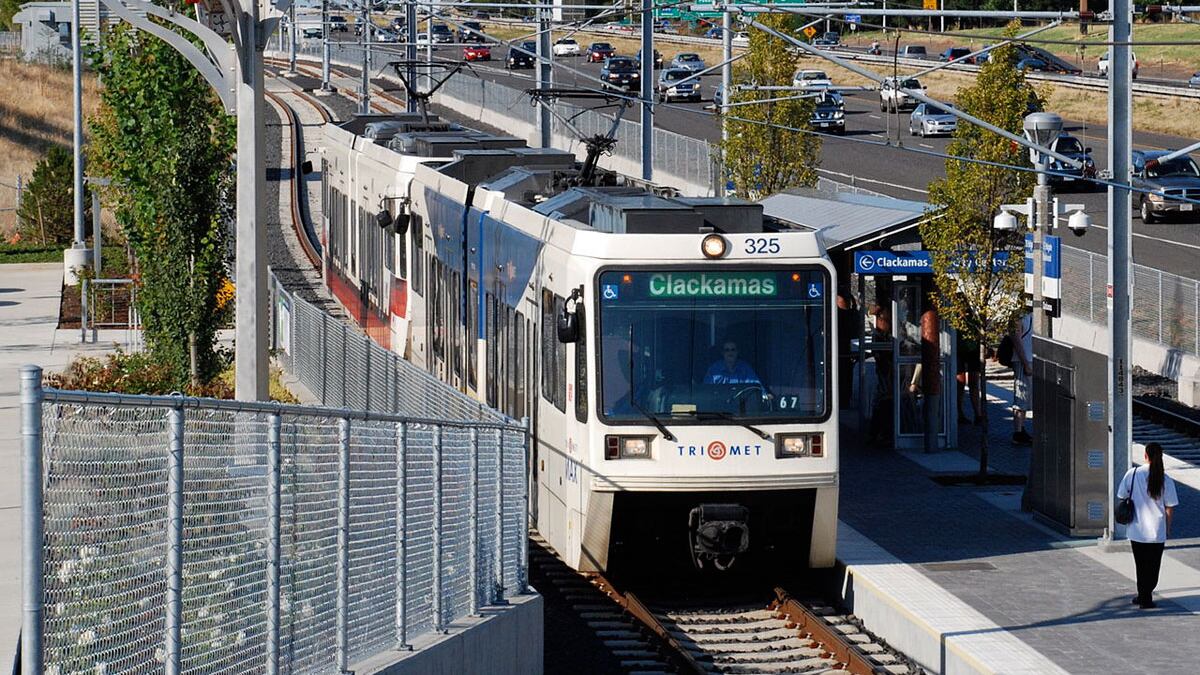For most Portlanders, high temperatures inspire cold drinks, or a jump in a river. For Nathan Lewallea, who has epilepsy, the solution to 91-degree temperatures July 5 was different: the air-conditioned MAX Green Line train.
"I take it because I know for a fact that the heat will put me into a seizure," says Lewallea, 25, who is homeless. He didn't pay fare that day. "If I get caught? Oh well, a ticket's a ticket."
Like many of the 61 percent of 4,177 homeless people who reported a disability in Multnomah County's "point in time" count, Lewallea has multiple challenges: He says he's a drug addict who "will use anything" and a convicted sex offender.
And like many homeless people, he finds the light-rail system indispensable, a way to get to services, work, shelter or a tent. Or just to stay cool.
This summer has focused new scrutiny on homeless people riding the MAX—especially on the Green Line, which runs from downtown social services to makeshift camps along multiuse paths like the Springwater Corridor Trail.
The May 26 stabbings on a MAX Green Line train were a nightmare on what is otherwise a well-regarded, occasionally award-winning transit system. Two men arrested for the crimes on that train, Jeremy Christian and George Tschaggeny, described themselves as "transient"—homeless—at jail intake; Tschaggeny lived under a nearby bridge.
Related: In the aftermath of notorious MAX crimes, Portland's homeless fear scapegoating and reprisals.
"We would be completely lost without the MAX," says Linda Wagner, 47, who is homeless, along with her husband, Carl, 46.
The Wagners are riding legally—they get help from TriMet's fare relief and assistance programs for low-income riders, which distribute $1.5 million annually. TriMet spokeswoman Angela Murphy says the transit agency has no way of tracking homelessness on its system, but noted that the number of grant applications for fare relief from nonprofits (which distribute the fare assistance to the homeless) had increased from 70 to 87 for fiscal year 2018.
(A new statewide transportation bill passed in early July is expected to generate an additional $35 to $40 million a year for TriMet, part of which will be used to implement a new low-income fare program.)

Jobs can be far from shelter, Linda Wagner says, so the MAX is crucial. But "normies," or normal people, can be judgmental. "They give us this look, like we're…"
"Junk," Carl Wagner says. "Like junk," Linda agrees. "And it hurts." She wipes away tears.
The MAX stabbings have increased public suspicion about homeless people riding trains—and intensified a debate about whether TriMet needs more transit police.
Sean Fredrich, a regular Green Line rider, says a few homeless people do panhandle aggressively on the MAX. "It happens with some frequency," he says. He wants to see more transit police actually on the trains.
Transit police officers do "ride in trains and buses frequently," TriMet spokeswoman Murphy points out. "However, officers need to be available to respond to serious incidents, which requires them to be close by their police cruiser."
Green Line rider Morgan Sette, 37, says he was inside for a while, but recently found himself "out on the trail again," meaning the Springwater Corridor. He's playing cat and mouse with four new park rangers assigned there by Mayor Ted Wheeler's fiscal year 2017 budget, which took effect July 1.
He'd love to see more fare assistance for the MAX. After a suspicious July 3 fire at the Clackamas Service Center near his camp, though, he's worried help may be harder to get. That fire is under investigation, and the center is currently providing services from its parking lot.
Where was he headed July 5? "I'm going to see my [probation officer], trying to work through that," Sette said, adding that he paid his fare this time but usually doesn't. Homeless people, he says, often have to choose between a ticket to ride and eating.

Down and Out in Portland, Oregon is a weekly feature that answers the city's most pressing questions about homelessness by taking them to the people who know the issue best: those living on the streets. Look for a new installment weekly throughout the summer.
